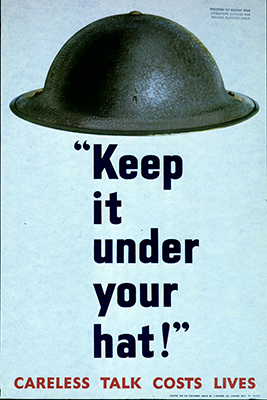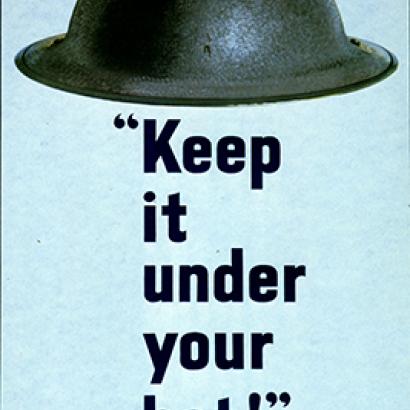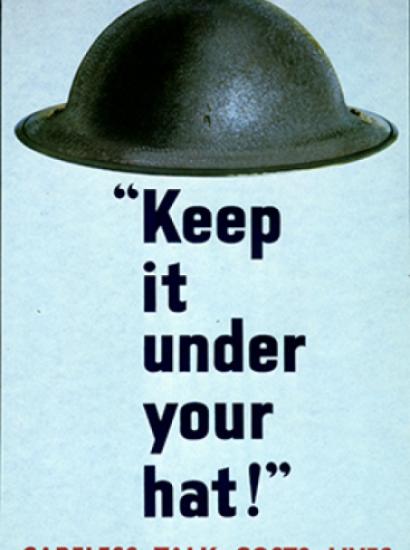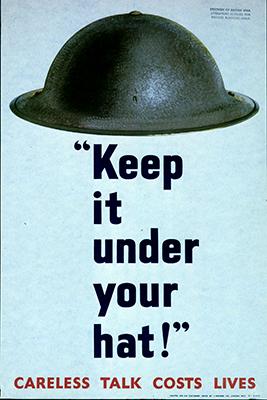- History
- Military

Military historians tend to spend far too much time on the combat arena in which armies, navies, and air forces contend. Yet, underlying their performance is the organizational behavior of intelligence agencies which should be responsible for guiding and framing their actions and reactions. Nothing displays this more clearly than a comparison of the cultures of the British and German intelligence organizations during the Second World War. The latter was hierarchical, compartmentalized, and separated the military from the civilians. Within the German system, there was virtually no tolerance, much less interest in, passing opinions and original ideas up the chain of command. But perhaps the greatest weakness in German military culture was the general contempt for intelligence and its purveyors.
The results showed most clearly in the fact that the German intelligence analyses at critical points in the war were disastrously off the mark. The most obvious were first those that dealt with estimating RAF Fighter Command’s capabilities at the operational level in summer 1940, and second those dealing with the operational and strategic capabilities of the Red Army and Soviet industry immediately before the invasion of the Soviet Union in June 1941. In the first case, the Luftwaffe’s intelligence missed entirely the nature of the British air defense system, failed to mention British radar, miscalculated the capabilities of the RAF’s fighters, and underestimated by a wide margin British fighter production. In the case of the Soviet Union, the Germans missed virtually everything, especially the capabilities of Soviet industries, not to mention the capacity of the Red Army to regenerate its combat forces.
The culture of British intelligence was quite different. Perhaps because the British felt they were so far behind the Germans, they recruited an exceptional group of potential analysts from the civilian world, including, historians, mathematicians, economists, and lawyers among others. Some of those the British recruited, the Germans would never have considered for intelligence work. The foremost cases are F. H. Hinsley and Roger Winn, the former a Cambridge undergraduate, the latter an outstanding barrister.
Leaving Germany in the last day before the declaration of war, Hinsley found himself incorporated into Bletchley Park, the Center of British signals intelligence. He was so successful in piecing together the movement of German ships that the Admiralty was willing to listen to his recommendation without hesitation. In March 1941, he divined that the German weather ship off Iceland was using the same cypher as the U-boats. The Admiralty’s response was to launch a cutting out task force of three cruisers and four destroyers on the basis of a twenty-two year old civilian. Hinsley was correct, and the task force seized the weather ship and its invaluable settings for the U-boat cyphers for the next two months. In the German system, the Wehrmacht would have grabbed Hinsley and made him an infantry officer, where his contribution to the Nazi war effort would have been zero. One can certainly not imagine the German admirals ordering such a task force on the urgings of a youthful, civilian intelligence analyst.
Winn is an equally useful example. He was one of the foremost barristers in the English legal system. But he had struggled with adversity his whole life. A victim of polio in his early youth, he walked with crutches and could only stand for short periods of time due to intense pain. Yet, at the outbreak of the war he volunteered to serve in intelligence and was accepted to work in the submarine tracking section of the Admiralty. So successful was Winn at that task that by 1942 he was running the Submarine Tracking Room. He was also handpicked to represent the Admiralty in negotiations with the Americans to help them overcome the disastrous anti-submarine campaign the U.S. Navy was botching along the East Coast of the United States. Again, in terms of German military culture, one cannot imagine the Germans using a polio cripple in military intelligence, much less giving him control over one of the most important intelligence organizations in the system.
And so what are the take-aways for thinking about intelligence in the twenty-first century? The most obvious is that a hierarchical system is a guarantee for failure. The second is that successful intelligence agencies must be able to reach out to civilian talent on the outside, especially during times of crisis or war. And perhaps the most important element in intelligence, as the 9/11 Report underlined, is imagination, not the number of beans you can count.















